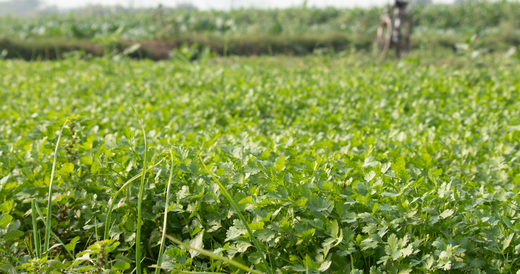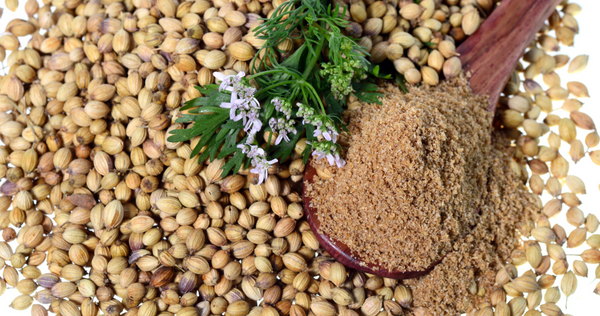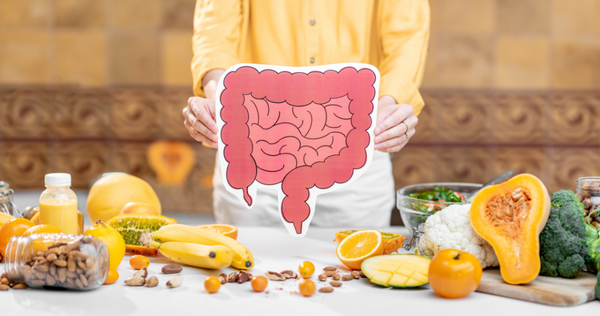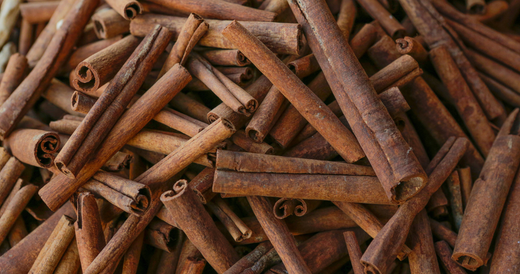
Coriander Herb Guide: 10 Benefits, Nutrients & Uses
What is Dhaniya or Coriander?
- English Name: Coriander
- Hindi Name: Dhaniya
- Sanskrit Name: Dhanyaka
- French Name: Coriandre
- Spanish Name: Cilantro
Dhaniya is an herb commonly used in culinary and medicinal applications. It belongs to the Apiaceae family and is known for its distinctive citrusy flavor and aroma.
Dhaniya is native to regions spanning Southern Europe, North Africa, and Western Asia. Dhaniya cultivation and utilization span back centuries, with historical records attesting to its prevalence across diverse ancient cultures.
Ayurveda recognizes dhaniya for its therapeutic properties. Dhaniya is believed to have cooling and digestive effects, making it a valuable ingredient in Ayurvedic remedies. It has been historically used to balance doshas, particularly Pitta, and address digestive issues.
Evidence Based Benefits of Dhaniya (Coriander)

Source: Dhaniya
1. Digestive Aid
Dhaniya has carminative properties, aiding digestion by promoting the release of digestive enzymes and reducing bloating and discomfort.
2. Anti-Inflammatory Effects
Coriander's essential oils showcase anti-inflammatory properties, offering potential relief from various inflammatory conditions.
3. Rich in Antioxidants
Dhaniya is a rich source of antioxidants, which may help combat oxidative stress and contribute to overall health.
4. Cholesterol Management
Some studies suggest that there are certain coriander medicinal uses. It helps lower cholesterol levels, supporting cardiovascular health.
5. Blood Sugar Regulation
Research indicates that dhaniya may have hypoglycemic effects, helping regulate blood sugar levels and potentially benefiting individuals with diabetes.
6. Anti-Bacterial Properties
Coriander exhibits antimicrobial properties, which may help fight against certain bacteria and infections.
Other Plants:
7. Menstrual Pain Relief
Dhaniya has been traditionally used to alleviate menstrual cramps, and studies suggest coriander benefits may include pain-relieving effects. You can also check other Ayurvedic medicines and products for Women.
8. Skin Health
The antioxidant and anti-inflammatory properties of dhaniya may contribute to skin health, potentially reducing skin irritation and inflammation.
9. Mood Enhancement
Some compounds in coriander may have a calming effect, potentially contributing to mood enhancement and stress reduction.
10. Bone Health
Dhaniya is a source of essential minerals like calcium, which is vital for bone health. Supporting the maintenance of strong and healthy bones is among the important coriander juice benefits.
Dhaniya for Digestive Aid

Source: Canva
The medicinal value of coriander is that it serves as a potent digestive aid due to its carminative properties, facilitating the release of digestive enzymes, reducing gastrointestinal discomfort, and alleviating bloating. Linalool, present in coriander, contributes to its carminative effects, promoting smooth digestion.
Dhaniya for Anti-Inflammatory Benefits
Coriander's essential oils, such as cineole and borneol, contribute to its anti-inflammatory effects, potentially offering relief from conditions like arthritis. These compounds make coriander a valuable herb for managing inflammatory disorders and joint pain.
Dhaniya for Antioxidants
Dhaniya is abundant in antioxidants like flavonoids and beta-carotene, combating oxidative stress and safeguarding cells from damage. This contributes to overall health and may aid in disease prevention by neutralizing free radicals.
Other Plants:
Nutrition Facts of Dhaniya
|
Nutrient |
Amount in 1 tsp |
|
Energy |
5.36 kcal |
|
Protein |
0.22 g |
|
Fat |
0.32 g |
|
Carbohydrates |
0.99 g |
|
Fiber |
0.75 g |
|
Vitamin C |
0.38 |
|
Calcium |
12.76 mg |
|
Iron |
0.29 mg |
|
Magnesium |
5.94 mg |
|
Phosphorus |
7.36 mg |
|
Potassium |
22.81 mg |
|
Zinc |
0.08 mg |
How Does Dhaniya Work To Aid Digestion?
Dhaniya exerts health benefits through various mechanisms that makes one question: Is coriander a medicinal plant? Its carminative properties facilitate digestion by stimulating enzyme release, reducing bloating. Essential oils like linalool and borneol contribute anti-inflammatory effects, reducing inflammation in conditions such as arthritis. Rich in antioxidants such as quercetin, uses of coriander leaves include their ability to combat oxidative stress.
Talking about coriander uses and benefits it’s necessary to mention that the herb's hypoglycemic potential aids in blood sugar regulation, supporting diabetes management. Compounds in coriander may inhibit cholesterol synthesis, contributing to improved cardiovascular health. Moreover, dhaniya's calming effects can enhance mood and reduce stress.
Different Ways to Use Dhaniya

Source: Canva
- Fresh Leaves: Garnish for salads, soups, and curries. Blend into chutneys and sauces.
- Coriander Seeds: Infused in teas for a soothing herbal beverage.
- Coriander Oil: Used in cooking and flavoring.
- Coriander Water: Soak seeds in water overnight for a refreshing drink.
- Dhaniya Powder: Pre-ground spice for convenient use in various recipes.
Dhaniya Facts and Myths
Facts About Dhaniya
- Fact 1: No evidence supports a link between coriander consumption and kidney stone formation.
- Fact 2: Both coriander seeds and leaves offer health benefits. The seeds of the dhaniya plant contain antioxidants and leaves are rich in vitamins and minerals.
- Fact 3: Allergies are rare. Coriander is generally well-tolerated, and any adverse reactions are usually mild.
Myths About Dhaniya
- Myth 1: Coriander seeds cause kidney stones.
- Myth 2: There is only nutritional value of coriander leaves and the seeds have no benefits.
- Myth 3: Coriander causes allergic reactions.
Growing Dhaniya at Home
Plant dhaniya seeds in well-drained soil in a sunny spot, ensuring adequate sunlight for growth. Keep the soil consistently moist, and harvest leaves once they reach a sufficient size, allowing for continuous growth. For limited space, grow dhaniya in pots, placing them near windowsills or balconies, and enjoy fresh, home-grown cilantro for culinary use.
Where to Buy Dhaniya Products
Explore Zanducare's Zandu Calming & Refreshing Herbal Infusion, featuring the goodness of dhaniya. Available for purchase on Zandu's official website and select retail outlets. Enjoy the natural benefits of dhaniya in a soothing herbal blend, perfect for relaxation and refreshment.
Conclusion
In a world where digestive discomfort, stress, and oxidative stress are common concerns, incorporating Dhaniya products becomes a natural solution. Its carminative properties alleviate digestive discomfort, while antioxidants combat oxidative stress.
Incorporating Dhaniya into various forms, from leaves to seeds, offers a natural and versatile solution. Whether in fresh culinary use or herbal infusions, Dhaniya becomes a valuable ally in promoting overall well-being, providing a simple and accessible way to enhance health.
FAQs
1. How do I use fresh Dhaniya leaves in cooking?
Wash and chop the leaves finely, then sprinkle them as a garnish on salads, soups, or curries for a burst of fresh flavor.
2. Can I use Dhaniya seeds in everyday cooking?
Grind the seeds into a powder and add it to spice up a variety of dishes like curries, stews, or marinades.
3. What are the health benefits of Dhaniya?
Dhaniya offers digestive support and is rich in antioxidants, contributing to overall well-being.
4. Can I grow Dhaniya at home?
Choose a sunny spot, plant the seeds in well-drained soil, and keep it consistently moist.
5. How can I make a simple Dhaniya tea?
Boil a teaspoon of crushed Dhaniya seeds in water, strain, and enjoy a soothing herbal infusion known for its calming and digestive properties.







Leave a comment
This site is protected by hCaptcha and the hCaptcha Privacy Policy and Terms of Service apply.